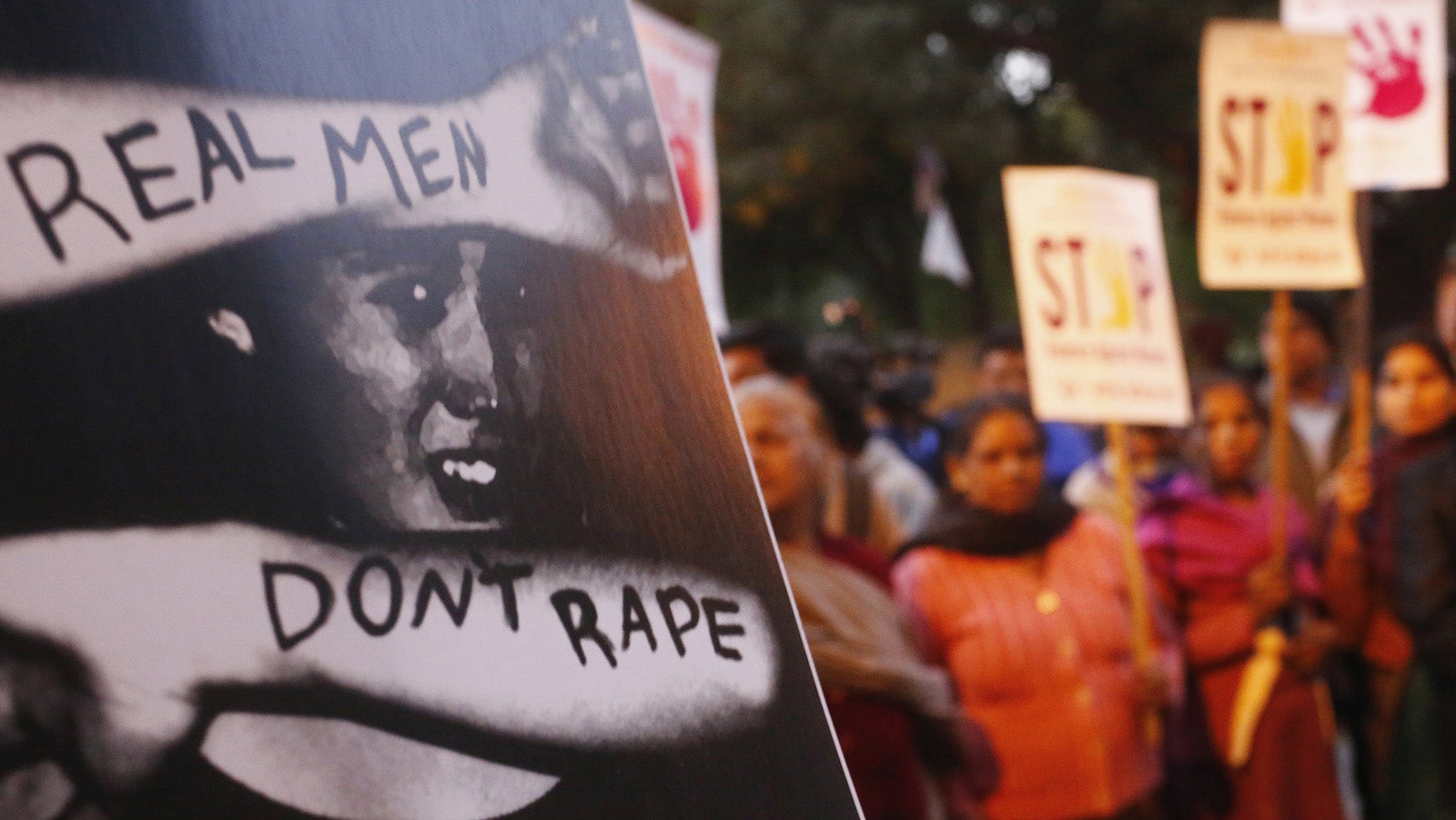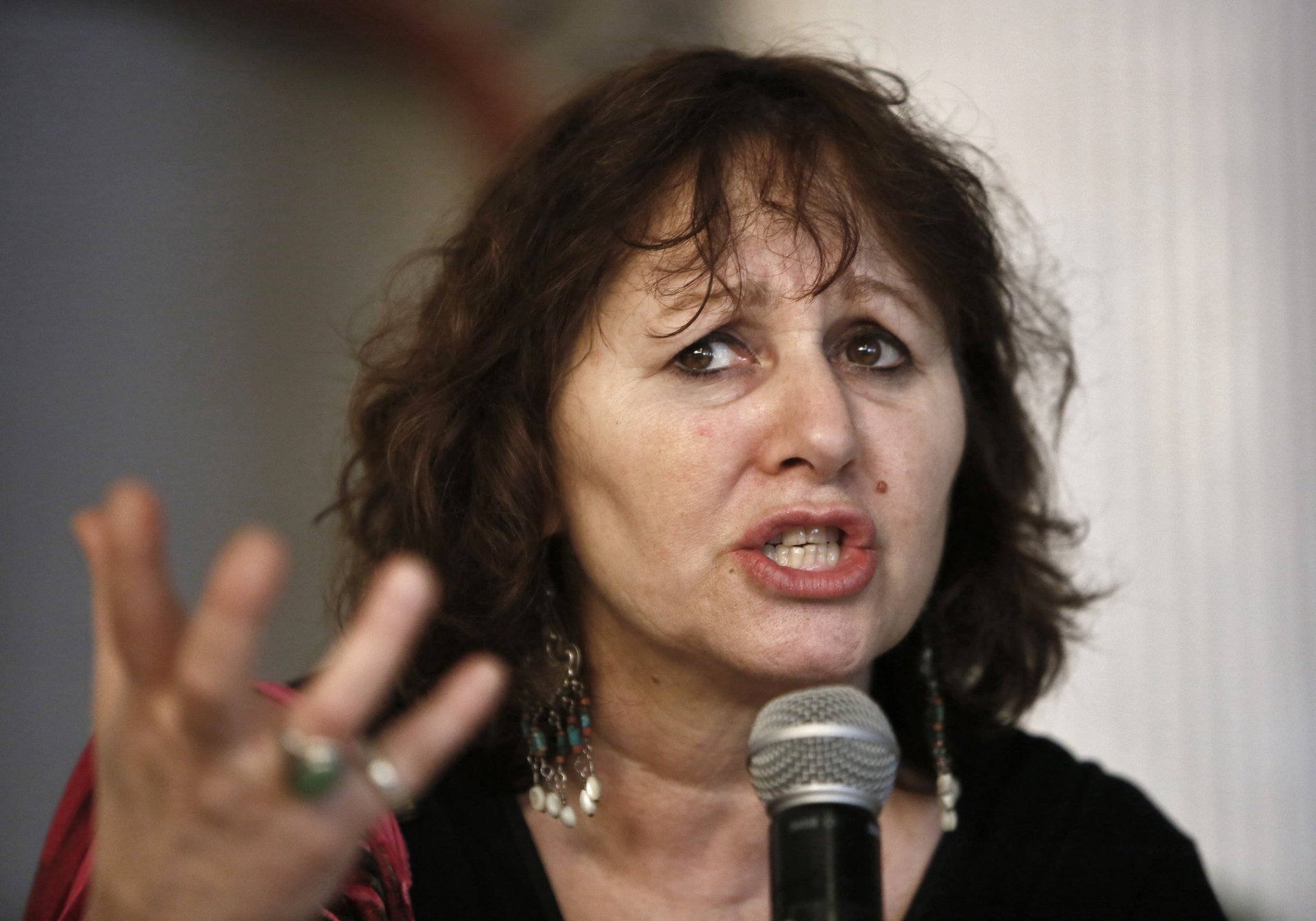India’s women are themselves divided over the ban on the Delhi gang rape documentary
India has banned a controversial documentary film on the Delhi bus rape of 2012.


India has banned a controversial documentary film on the Delhi bus rape of 2012.
Opinions are now divided on the screening of the film—India’s Daughter by Leslee Udwin—largely because the British filmmaker managed to interview Mukesh Singh, a convict in the case who made spiteful statements against the victim and blamed her for the rape.
Singh and five other accomplices had raped and savagely beaten up a 23-year-old physiotherapy student in a moving bus in New Delhi on Dec 16, 2012. She was then left to die on the city’s streets.
Amidst the furore in India’s parliament about how Udwin gained such access, there is a debate brewing among the country’s women activists on whether the film should be screened in India.
Kavita Krishnan, a prominent women activist who participated in the nationwide protests following the gang rape and also appears in Udwin’s documentary, believes the documentary film mustn’t be aired.
“The more important discussion on rape has died,” Krishnan, secretary of All India Progressive Women’s Association told Quartz in a phone interview. “The problem is that through this video, you are conducting a media trial. And what worries me is that the wider discussion on this issue then gets subdued.”
Legal problems
Mukesh Singh, and four other adult rapists, were sentenced to death by a fast-track court. Though the Delhi high court upheld the penalty, a Supreme Court’s hearing on their appeal is pending.
“Would she (Udwin) have been able to take and air such an interview of a rape convict in the UK, when the appeals process was still underway?” Krishnan asked in a Facebook post.
Others have also questioned the legalities of the interview process.
“Was the accused given to understand the nature of the interview and the repercussions it could have on his case?” Amba Salelkar, a lawyer and activist, asked in an article. ”Was the interview recorded in the presence of other police/jail officials? The reason this is important is that this could change the nature of a confession from an extra judicial to a judicial one and have an impact should the State choose to rely upon it before the Supreme Court.”
Permissions violated
The Indian government has banned the film because it is concerned about the derogatory comments made by Mukesh Singh. There is also lack of clarity about who allowed Udwin to interview the convict. Home minister Rajnath Singh accused the filmmaker of violating “permission conditions” that included giving jail officials access to the complete, unedited footage of the interview.
“How was permission given to interview a rapist? It is shocking. I will get this investigated,” Singh said in parliament.

Udwin, however, has contested the claims that she did not receive necessary permissions from the government.
“India should be embracing this film—not blocking it with a knee jerk hysteria without even seeing it,” she wrote in a short statement. ”This was an opportunity for India to continue to show the world how much has changed since this heinous crime; sadly, the FIR and the banning of the film will see India isolated in the eyes of the world.”
And there is an equally vociferous campaign against the ban, which includes lawyer and lawmakers.
“How can you technically object to the film without seeing it?” Karuna Nundy, an advocate at the Supreme court, told Quartz. “It should be left to the audience to decide and interpret the video. There is an increasing problem of criminalisation over every issue. By banning the film, the ugly misogyny that exists doesn’t go away.”
On Wednesday, women politicians in India were also up in arms against the government’s decision to ban the film. “Banning the movie is not the solution,” Rajya Sabha member Anu Aga said in parliament. “We are glorifying India, but lets not pretend that all is well in the country.”